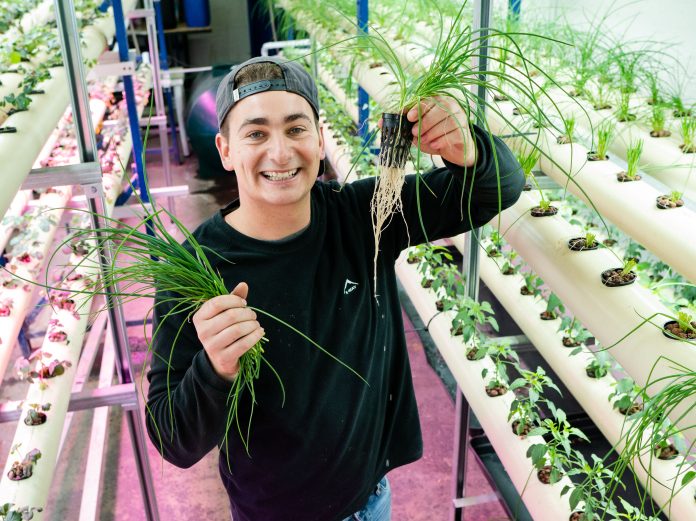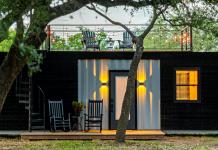Prior to lockdown, Kloof locals Branden Gee (28) and Cameron Blair (26) were living their dreams in the tourism industry. Today they have transformed their love for nature, food and sustainability into tools to build a stronger and more equitable way to revolutionize the entire food chain. They’re calling it, Our Little Company.
“It all began with a bit of cash in our pockets and time to kill. Cameron is a travel film maker and I am a tour guide, and with lockdown leaving us unable to travel or work, we embarked on a journey (in April 2020) that would open the doorway to endless possibilities, not only for us, but the youth of today.”
With the support of Branden’s dad, Peter, the two built a hydroponic farm called Gees Hydro on Caversham Road and began growing their own produce in a confined area, using 90 per cent less water than traditional farming.

“We focused on microgreens and strawberries to start. Closer to home meant more affordable and healthy. We then began offering free tours of our farm because we realised the future of farming was on our doorstep. People flocked to see what we were up to.”
Branden and Cameron’s little venture gained so much popularity that it even attracted the attention of Thomas More College who took its students on a tour to see this new and unique way of growing surplus food.
“We still offer free tours, because the aim is to bring like-minded people together.”
Today, under the name, Our Little Company, they specialise in basil (which they sell to friends, family and some small restaurants) and are also growing tomatoes, lavender and rosemary.
Working tirelessly, seven days a week, the duo are constantly learning how to grow different plants and produce and perfecting the environment of their little farm, all while operating within their three sustainable principles – earth care, people care and fair share.
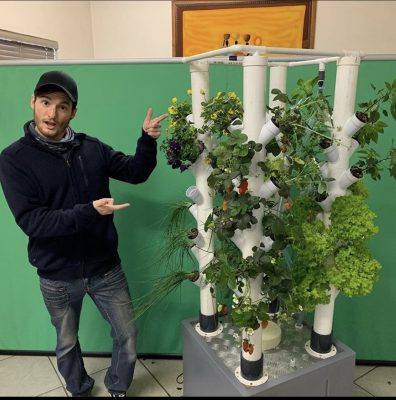
“Gees Hydro was founded to teach people (using hydroponics) that there is a better way to create food … thus ‘earth care’. In terms of ‘people care’, Cam and I started noticing that more and more people were losing the battle against the harsh national lockdown and feeling the pains that the global pandemic had brought to our beloved neighbourhood. We set up a free e-commerce site called Our Local Market, aimed at putting money back into our local economy. We advertise people’s products, sell them and deliver them, nationwide. Vendors need only to make their products, we do the rest.”
And lastly, the ‘fair share’ concept Branden and Cam don’t only want people to think more about where their food comes from, but to encourage them to grow their own.
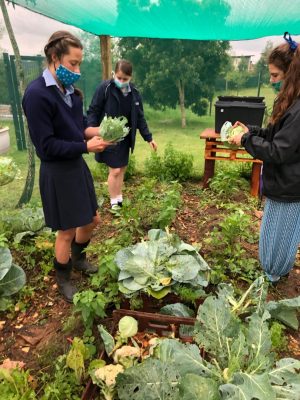
Engaging youth in agriculture is a prominent topic and has risen up the development agenda as there is growing concern worldwide that young people have become disenchanted with agriculture. Branden and Cam created The Permaculture Project, which gives back by building permaculture patches in schools and teaches children how to turn their 100 per cent organic vegetable garden into a business, so they can become entrepreneurs who give back to nature
“We targeted schools because we believe in empowering the next generation to not only grow their own food but to fall in love with their natural surroundings. We make our own soil and fertilisers. If every school participated in The Permaculture Project, then every family could have access to food directly from the farm, grown organically and by the students of the school while they learned the fundamentals of nature, how to self-sustain, how to turn their vegetable patch into a business and contribute to a solution to two major global issues – food security and global warming.”
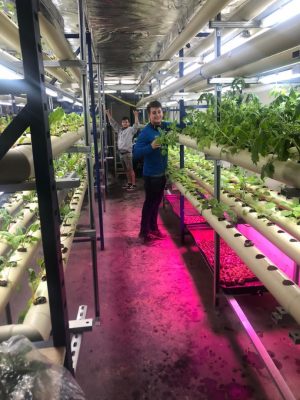
Branden and Cam have two projects in operation – one at Curro and one at Hillcrest High. There is third that will begin this month with the Drakensberg Boys’ Choir and they are in negotiations with Thomas More College. Their dream is to have a permaculture patch in every school in the country.
“We believe that everyone should be growing their own food, so we are on a journey to make it simple, affordable and a reality. The future we see is a world where everyone is going to need to know how to grow.”
Details: The Permaculture Project: [email protected]; Geeshydro: [email protected]; Our Local Market: [email protected]; 081 897 0998

